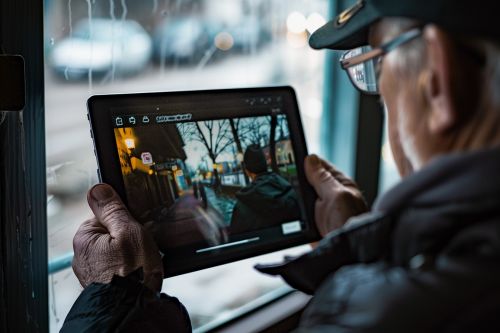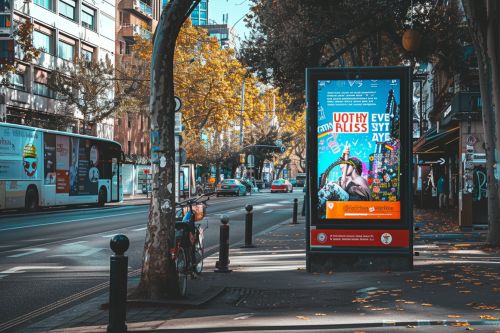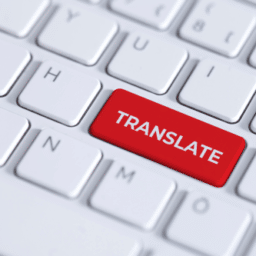

Why do globally recognised brands like Apple, Nike, and Coca-Cola speak to their customers in such a compelling way? International success lies in more than just great products and flashy advertising—it is about masterful branding.
Marketing efforts create a brand that resonates with people worldwide, transcending cultural and linguistic boundaries. Imagine you have crafted an excellent slogan in English. In its original form, it perfectly captures your company’s spirit, adding playful wordplay or a joke. However, will it be equally effective when translated into French, Spanish, or Chinese? Yes, but only if it gets translated appropriately.
Contents
What is international branding?
International branding consists of saying exactly what your customers want to hear in the most appealing way. In short, it is creating and managing a brand to make it recognisable worldwide. Branding is built of many smaller elements: a logo, a slogan, communication with the target audience, a package, and a story that connects the product with the emotions and experiences of the customers.
Brand consistency
A brand should be consistent. Whether someone sees your product in London, Tokyo, or Buenos Aires, they should perceive it in a similar way. This means a uniform style of communication, consistent use of colours, the logo, and the company’s message. Do you recognise the red and white colours of Coca-Cola? You will easily spot it in other corners of the world, including Thailand and Australia.
Respect for the culture
When working on branding, you need to show your respect for culture. Start with deep understanding of what is acceptable and what could be taboo in different regions. McDonald’s provides a great example. In India, where beef is not consumed for religious and cultural reasons, their menu primarily features chicken and many vegetarian options. The burgers still look similar to those in the United Kingdom or the United States, but they use different ingredients.
Research
To enter a new market, conduct detailed marketing research beforehand. This research helps to understand local needs and preferences. Analysing the competition in a specific region provides valuable insights into what already exists and what new offerings could be introduced. Hiring people who are familiar with the specifics of a particular market, local marketing strategy experts or PR agencies helps refine the branding strategy and avoid potential misunderstandings.



Why should you focus on international branding?
When your brand becomes globally recognised, you gain access to customers from various cultures and regions. This expands the reach of your business and potential revenue.
Brands like Apple or Nike are recognised worldwide and associated with a certain quality and lifestyle. Strong international branding allows them to introduce products to foreign markets because consumers already know and trust their brand. A strong international presence builds reputation and credibility, which is extremely important in a highly competitive market.
Effective international branding helps to stand out in a reality where products and services are very similar to each other. A great example is Swedish Ikea, renowned for its stylish design and affordable prices, as well as stores resembling real interiors.
Global branding is a strategic business decision that extends the reach of a brand. Investing in professional advertising translation facilitates the further growth of the company.
International marketing: translating slogans
An advertising slogan is a short phrase immediately associated with a particular brand. Examples include Nike’s Just Do It or McDonald’s I’m Lovin’ It. Companies often choose to leave it unchanged across different markets. However, sometimes they undertake the challenging task of translating the slogan. How successful are they?
L’Oréal’s famous slogan Because you’re worth it was subtly changed to Porque tú lo vales in Spanish-speaking countries, which means Because you deserve it. This small change gives the slogan a more personal and emotional character, which may work better in cultures with a strong sense of individualism.
Advertising translation gone wrong
However, translating slogans does not always go smoothly. In a Chinese advertising campaign, KFC used the phrase Eat your fingers off instead of the traditional Finger-Lickin’ Good. Coca-Cola in New Zealand wanted to combine English and Maori in the translation of Taste the Feeling. The resulting phrase, Kia Ora, Mate, instead of encouraging enjoyment of a refreshing beverage, unintentionally wished buyers death.



How do translation services influence your brand’s perception?
Consumers are more likely to trust a brand that communicates with them in their native language. This builds a closer relationship and positive associations. On the other hand, direct translation errors destroy a positive image. Some mistakes are capable of undoing years of carefully built market presence.
A good translator will ensure the cultural references, style, and tone of the original message are conveyed accurately. When working on international branding, it is advisable to use the services of a native speaker. They have an innate feel for different languages and can quickly spot awkward phrasings and terms that may not resonate well in a particular market.
Why should you invest in professional translation in a foreign market?
Translation to other languages does not mean merely converting words from one language to another. When a brand enters a new market, its message must be clear and understandable to local consumers and should reflect the brand’s values and personality. Good translation builds trust and an emotional connection with customers.
There are numerous examples of translation errors that have harmed international brands. A well-known case involves Pepsi. Their renowned slogan Come Alive With Pepsi was translated in Taiwan as Pepsi will bring your ancestors back to life. Needless to say, such a promise from the brand turned out to be very controversial.
Translation (or lack of it) has a huge impact on how a brand is perceived internationally. Good translation reaches the hearts of consumers, while bad translation quickly turns them away from a company.



Localising marketing materials
Would you like your marketing campaigns to get noticed and bring in new customers? Professional localisation and globalisation advice services will help you achieve this goal. This process involves adapting your entire marketing content to the cultural, social, and linguistic conditions of the local market, much more than literal translation.
Take advantage of our translation agency‘s services. We assist brands in entering international markets by creating materials that sound convincing to international audiences. We work with slogans, product descriptions, promotional videos, and other materials. Not only that, but we also tailor website content to user preferences and SEO algorithms, increasing your company’s visibility in local searches.
Would you like to make your brand recognisable? Contact us, and we will show you how to do it.
Images generated by AI.















